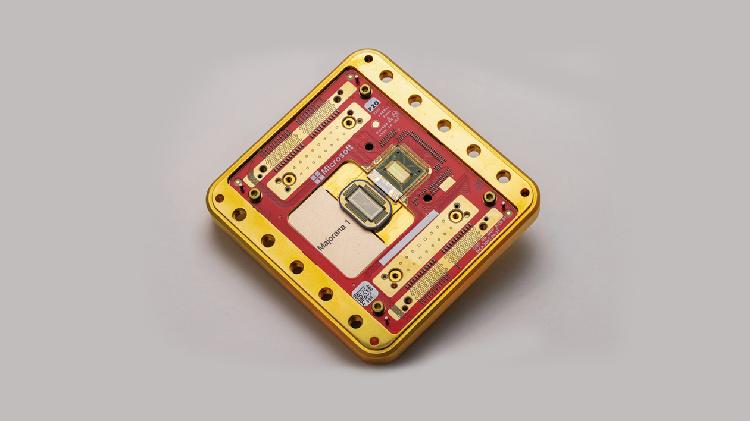Microsoft introduces new quantum computing chip
Microsoft has introduced a groundbreaking quantum computing chip, marking a significant advancement in the field. The new technology aims to enhance computational capabilities and will play a crucial role in the company's ongoing quantum research initiatives. With this development, Microsoft continues to strengthen its position in the rapidly evolving quantum technology landscape.

Named Majorana 1, this chip is touted as the world’s first Quantum Processing Unit powered by a Topological Core, designed to scale up to a million qubits on a single chip, according to information on the company’s website and a research paper published in the academic journal Nature.
The chip is made from indium arsenide and aluminum and utilizes a superconducting nanowire to detect particles, allowing it to function with standard computing equipment. This design seeks to lower error rates when compared to current quantum processors.
Microsoft claims that Majorana 1 exhibits lower susceptibility to errors than competing technologies, with supporting evidence provided in a scientific paper. Quantum computing has the potential to conduct calculations in mere moments that would take traditional systems millions of years, paving the way for advancements in areas such as medicine and chemistry, where classical computers encounter difficulties due to the vast number of possible molecular combinations.
While Microsoft did not specify a timeline for scaling the chip to produce quantum computers that surpass today's systems, the company indicated in a blog post that this milestone is "years, not decades" away.
Jason Zander, the executive vice president at Microsoft overseeing long-term strategic initiatives, characterized Majorana 1 as a "high risk, high reward" approach.
The fabrication of the chip took place at Microsoft labs located in Washington state and Denmark.
Ian Smith for TROIB News
Discover more Science and Technology news updates in TROIB Sci-Tech












